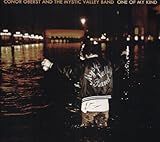Ruminations (Vinyl)
Appliances
Arts, Crafts & Sewing
Automotive
Baby
Beauty
Books
CDs & Vinyl
Collectibles & Fine Arts
Cell Phones & Accessories
Clothing, Shoes & Jewellery
Computers
Electronics
Health & Personal Care
Home & Kitchen
Industrial & Scientific
Luggage & Travel Gear
Musical Instruments
Office Products
Patio, Lawn & Garden
Pet Supplies
Software
Sports & Outdoors
Tools & Home Improvement
Toys
Video Games








![Conor Oberst [Vinyl]](https://m.media-amazon.com/images/I/5138Ze4ltkL._SL160_.jpg)
![I'M WIDE AWAKE, IT'S MORNING [Vinyl]](https://m.media-amazon.com/images/I/61BeQE40A-L._SL160_.jpg)
![CASSADAGA [Vinyl]](https://m.media-amazon.com/images/I/51r+QJIpbpL._SL160_.jpg)


![LIFTED or The Story is in the Soil, Keep Your Ear to the Ground 180 gram 2xLP [Vinyl]](https://m.media-amazon.com/images/I/61lERuRqhbL._SL160_.jpg)
![Outer South (Ogv) [Vinyl]](https://m.media-amazon.com/images/I/51v2i+u8FxL._SL160_.jpg)
![DIGITAL ASH IN A DIGITAL URN [Vinyl]](https://m.media-amazon.com/images/I/41v66UEH+bL._SL160_.jpg)
